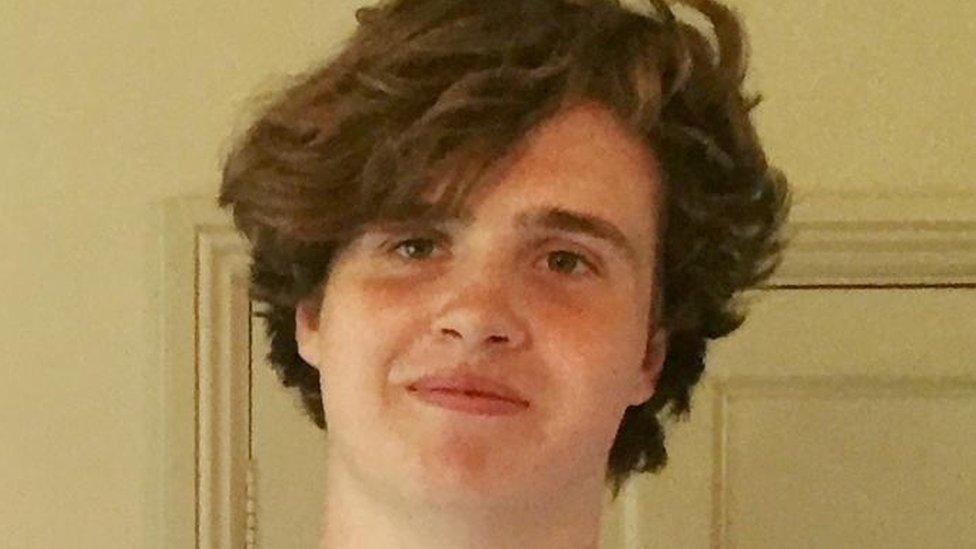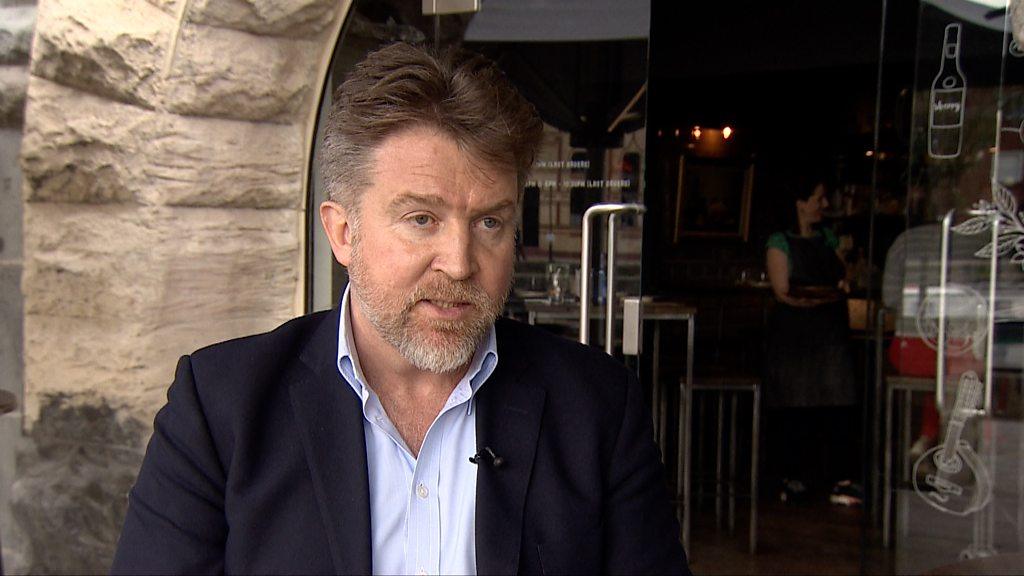Pandemic mental health: Students urged to talk
- Published

James Murray has been campaigning to improve mental health services since his son Ben took his own life aged 19
The father of a University of Bristol student who took his own life is urging young people to look after their mental health during and after the pandemic.
James Murray has been campaigning to improve student welfare since the death of his 19-year-old son Ben in 2018.
His experience led him to work for a national digital mental health service, Kooth, which is used by the NHS.
Data collected from its users found 12% of university students had experienced suicidal thoughts in 2020.
A quarter of them signed up for free counselling from the service last year and 18% reported an increase in anxiety and 55% had experienced a drop in motivation in the past year.

Ben Murray was reading English at the University of Bristol and died in 2018
Mr Murray has also worked with Public Health England to improve the reporting of serious incidents in higher education.
Ben Murray took his own life after receiving the news he had been removed from his English degree.
"The last lunch that I had with Ben he said to me very clearly that he'd wished he'd been more open. This is why mental health really is a team sport, " Mr Murray said.
"Ask that person, are you ok? Are you sure you're ok? How are you coping with this difficult time?"
The University of Bristol has been working with Mr Murray since his son's death to increase mental health provision.
Together they introduced an "opt-in system where students can choose, or refuse, to allow universities to get in touch with a parent or a trusted adult if there are serious concerns about their wellbeing.
'I couldn't cope'
The university's counselling team has launched a free weekly podcast Your Amazing Mind, external that allows students to talk anonymously about their experiences.
One student, Brian, told listeners about his debilitating anxiety in one episode.
"It was getting kind of desperate. I didn't know what was wrong but I just felt I couldn't cope any more.
"It manifested, in the end, through me just becoming somebody else. I didn't even recognise myself."
Podcast host Michael Pearson said: "With the help of a different specialist each week, it gives advice to students, young people and adults experiencing similar issues."
If you have been affected by this story then the following organisations may be able to help.
Related topics
- Published2 May 2019

- Published2 May 2019

- Published1 May 2019

- Published12 June 2018
